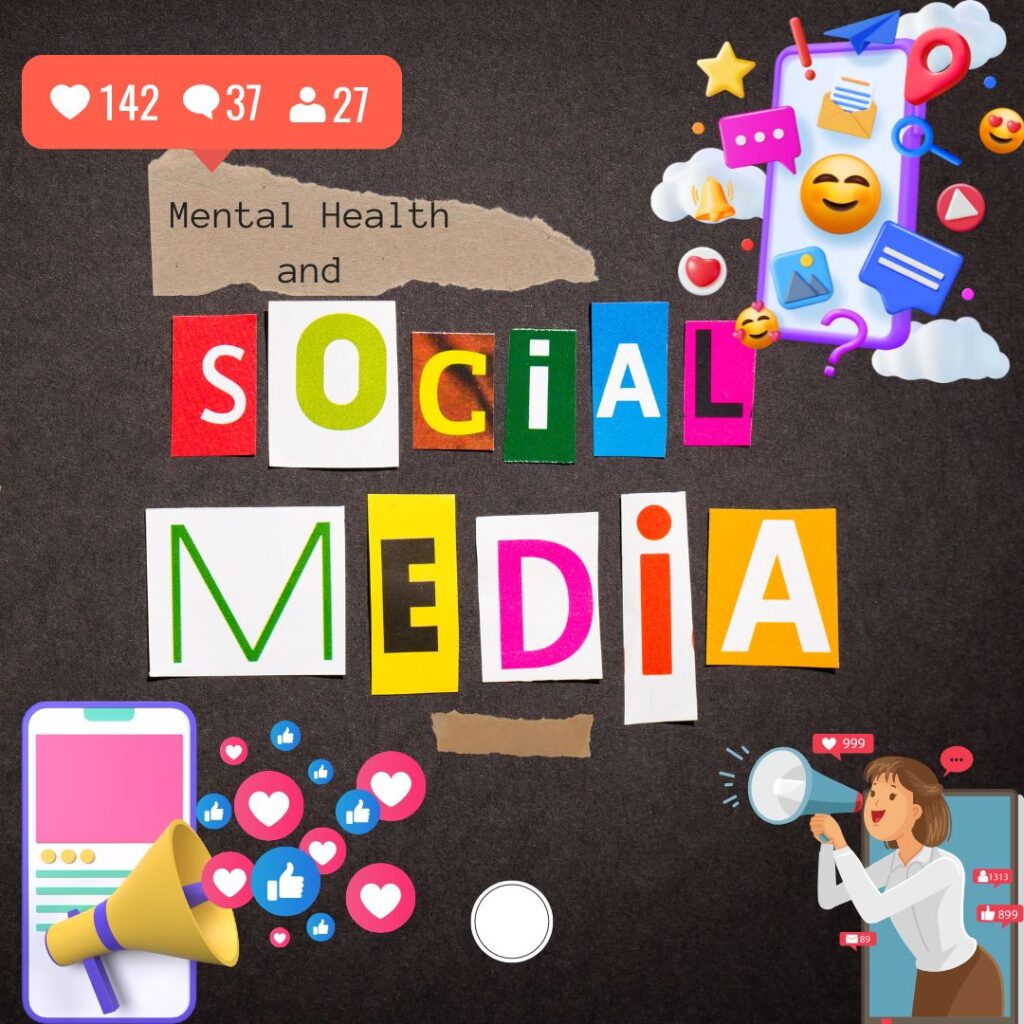By Ashley Patterson, First City Counseling
In today’s digital age, social media has become an integral part of our lives. It allows us to connect with friends and family, share our experiences, and stay updated on the latest news and trends. However, as social media’s presence continues to grow, so does the need to explore its impact on our mental well-being. In this blog post, we delve into the effects of social media on mental health and discuss ways to promote responsible usage for a healthier online experience.
The Double-Edged Sword of Social Media:
There’s no denying that social media has its benefits. It enables us to form meaningful connections, find support communities, and express ourselves creatively. Nevertheless, the constant exposure to curated content and the pressure to maintain an idealized image can take a toll on mental health.
1. Comparison and Insecurity:
Social media platforms often serve as highlight reels of people’s lives, showcasing the best moments and achievements. This can lead to constant comparison, leaving individuals feeling inadequate or insecure about their own lives.
2. Fear of Missing Out (FOMO):
FOMO is a common phenomenon on social media, where individuals fear that they are missing out on exciting experiences or events that others are enjoying. This fear can lead to anxiety and dissatisfaction with one’s own life.
3. Cyberbullying and Online Harassment:
The anonymity provided by social media can sometimes embolden individuals to engage in cyberbullying and harassment. Such negative experiences can significantly impact mental well-being, causing emotional distress and social withdrawal.
4. Addiction and Sleep Disturbances:
The constant need to check social media notifications can develop into an addiction, interfering with sleep patterns and overall quality of rest.
Promoting Responsible Social Media Usage:
While social media can be challenging, it doesn’t have to be detrimental to our mental health. By adopting mindful practices and setting healthy boundaries, we can ensure a positive online experience.
1. Awareness and Limitation:
Recognize the impact social media has on your mental health. Be mindful of your emotions while using social media and consider setting time limits to avoid excessive usage.
2. Curate Your Feed:
Unfollow accounts that trigger negative emotions or feelings of inadequacy. Instead, follow content that inspires and uplifts you.
3. Engage Authentically:
Focus on building genuine connections on social media. Engage in conversations that are meaningful and supportive.
4. Take Breaks:
Regularly disconnect from social media to give yourself space and time for real-world experiences and self-reflection.
5. Seek Support:
If you find yourself struggling with negative emotions related to social media, don’t hesitate to seek support from friends, family, or a mental health professional.
Conclusion:
As social media continues to shape our lives, it is crucial to be conscious of its impact on our mental well-being. By promoting responsible usage and maintaining a healthy balance between online and offline activities, we can enjoy the benefits of social media while safeguarding our mental health. Let us embrace technology mindfully, making social media a tool for connection, inspiration, and personal growth.
Remember, at First City Counseling, we are here to provide guidance and support for individuals navigating the complexities of modern life. Together, let’s build a healthier relationship with social media and prioritize our mental well-being.
About the Author:
Ashley Patterson is a counselor at First City Counseling. With a passion for mental health advocacy, Ashley strives to empower individuals to live fulfilling lives by addressing the challenges of the digital era. Through her expertise and compassionate approach, she helps clients discover balance and well-being amidst the complexities of the modern world.




